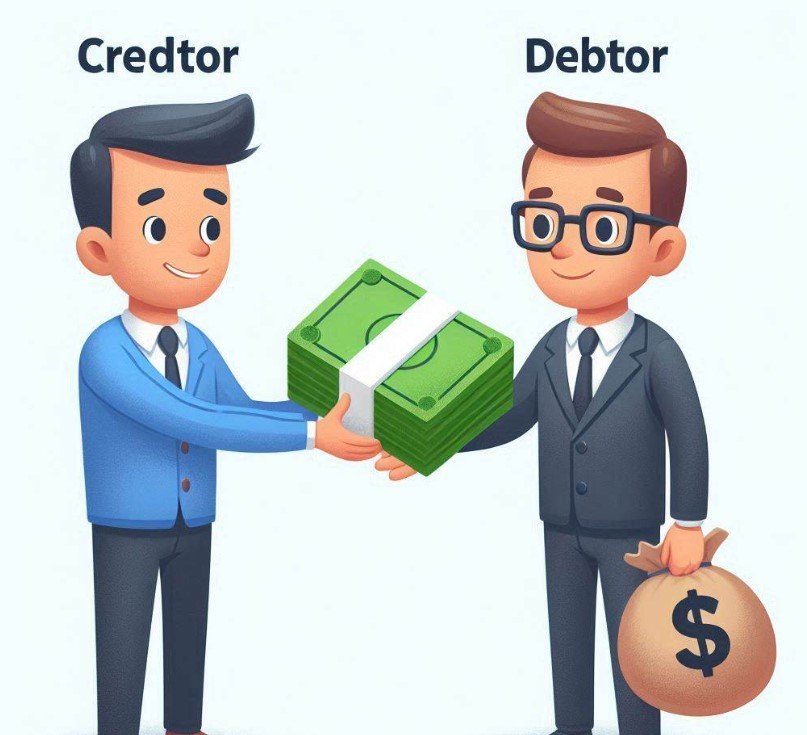Are you looking for What Is Debtor Finance? This post will explore the ins and outs of debtor finance to help anyone who wants details about it and how it works for different businesses. Getting cash flow and regular income is the only lifeline for a business to survive in competition and enable growth. Entrepreneurs look for cash flow solutions and find the answer in debtor finance or invoice financing. Using unpaid invoices as collateral, businesses can secure immediate funds to pay bills or invest in other projects while continuing with business activities. In this detailed guide, we cover all the basics surrounding debtor finance. And dive deep into its types, working structure, advantages, and more.
What Is Debtor Finance?
Debtor finance is a type of financial solution that can provide SESA businesses with an alternative avenue to unlock cash to unlock some money that might be otherwise trapped inside slow-paying invoices. It enables companies to obtain funds for ongoing activities and growth plans. This tool is essential for businesses that have payment delays, giving them liquidity in their daily routine to pay bills and suppliers or use it for growth.

How Does Debtor Finance Work?
Debtor finance is where a financial institution or third-party provider buys a company’s accounts receivable. If the company avoids factoring and has served with an alternative provider that bills in installments after sending adequate documentation to the food truck lender regarding their customer’s purchasing history, it would get some of what it is owed upfront. At the same time, the sales channel takes out its piece as it collects from client side.
- Invoice Generation: The Company sells goods or services to the customer and gives them an invoice.
- Finance App: The business applies for debtor finance, using the unpaid invoice as collateral.
- Pre-Payment: A finance provider allows businesses to draw down a proportion (usually 70–90%) of the value of an invoice ahead of customer payment.
- Payment of Invoice: The customer will pay the agreed invoice amount to the finance provider.
- Balance Payment: After you pay the invoice, the service provider deducts its charges and remits whatever remains to your business.
What Is A Creditor And Debtor?
Understanding the roles of creditors and debtors is vital in understanding Debtor finance.

- Creditors: Creditors can then be able to gather the amount owed from them. The creditors provide these funds or go or/services on credit.
- Debtor: The business that has invoiced customers and is due to be paid. Debtor finance relates specifically to a company’s debtors (sometimes called accounts receivable). Debtors must pay the money back when they borrow it.
In simple words, debtor finance is a cash flow solution that allows you to access money tied up in unpaid invoices.
What Is A Debtor On A Financial Statement?
A debtor is an entity or a person who owes money to a business. Under the principle of Accounting, they are considered assets to who these amounts will be received in the future; hence, a debtor is reported under an asset wing on a bank sheet. Debtors are typically created by credit sales (i.e., goods or services have been provided to a customer who will pay at a later date). For example: Credit Sales Suppose a company sells goods for $10,000 but does not receive money immediately in cash; they buy them on credit. Here, the $10,000 that has to be recovered from customers shall first be debited as Debtors or Accounts Receivable.
Different Types Of Debtor Finance
Debtor finance manifests in different forms for various business needs.
- Invoice Factoring: A finance provider buys the company’s receivables, so collecting payment responsibilities are transferred to the finance provider. A quick explanation: the business gets a cash advance, and the service provider collects all of this.
- Invoice Discounting: The business remains in the debt collection process and has complete control over managing its sales ledger. For example, suppose the invoice has a value of £1000, and an agreement is made for 60% of funds to be provided upfront by the finance provider. In that case, once you send your total invoice amount as received, it will release 60 odd % with interest from their initial deposit.
- Selective Invoice Financing: Selective Invoice Finance Only specific invoices are used for funding, rather than the entire sales ledger of a business. This allows them to handle cash flow at their convenience.
- Full Ledger Factoring: The finance provider factors everything, supporting the business’s cash flow.

Benefits Of Debtor Finance
Debtor finance has several benefits for businesses, so it is often considered one solution to cash flow management problems.
- Increased Cash Flow: Turning invoices into immediate cash allows businesses to pay debts and fund growth.
- Money flow: Pooling in cash lowers the stress of customer payments and makes operations carry on smoothly.
- The business can build on this as sales increase since debtor finance is scalable.
- Neither Additional Debt: Debtor finance is not considered an additional debt, and debtor finance only depends on current receivables, but traditional loans add more debt to companies.
Recourse Or Non-Recourse Debtor Finance
There are two methods debtor finance can be structured: recourse and non-recourse, each of which has different implications for the business:

Recourse Debtor Finance
The business will still be liable where the invoices are unpaid. If the customer misses a payment, that business must pay back an advance from its finance provider.
Non-Recourse Debtor Finance
The finance provider takes on the debt or risk of non-payment. Even if the customer defaults, you are off the hook for repaying the provider. Non-recourse debtor finance provides the opposite, where businesses prefer to limit their risk of not getting paid.
Who Can Benefit From Debtor Finance?
Businesses suitable for debtor finance are broad and include many companies that operate on credit terms but face delays in receiving payment, such as:
SMEs (Small and Medium Enterprises)
Debtor finance enables SME owners to tap into an alternative source of Working Capital, which can be used for their business growth or payment needs.
Faster growing companies
Rapidly growing businesses face increased financial challenges. With debtor finance, you can get the liquidity to fund that growth. For seasonal businesses, Debtor finance is an excellent way to even out the rocky financial peaks and troughs that accompany seasonality, as it can be used when needed most.
New Startups
For New Businesses (with limited history), StartUp Py states they may need help to obtain a traditional loan. Debtor finance also allows the lender to discount its credit risk premiums.
Does The Term “Debtor Finance” Refer To Accounts Receivable Financing?
There can be little confusion; debtor and accounts receivable financing are often the same. Both terms denote the most common way of using unpaid invoices to get some financial support.
- Factoring and Invoice Discounting: This all falls within the category of accounts receivable financing.
- Debtor Finance: Debtor finance is an accounts receivable finance subsector that targets financing based on debtor-owned invoices.
Is Debtor Finance Right For My Business?
Whether or not debtor finance is right for you depends on a handful of factors:

- Cash Flow Needs: Debtor finance is suitable for businesses experiencing late payments in part. If debtor finance is the best option, consider your cash flow requirements.
- Credit Control: Debtor finance will appeal to those companies that prefer to outsource their credit control and collection. Businesses must review their credit control requirements and risk tolerance levels.
- Expansionary plans: Companies planning expansion can use a debtor finance solution to fund their working capital requirements. Debtor finance can help with growth and expansion plans,
How Does Debtor Financing Improve Cash Flow And Create A Strategic Advantage?
Debtor financing is essential to unlocking cash flow and providing businesses with a competitive edge. Following are the way for How Debtor Financing Improve Cash Flow And Create A Strategic Advantage:
- Cash Flow Today: Debtor finance converts invoices into cash, which can help cover expenses and invest in opportunities that otherwise would not have been possible due to late payments.
- Faster Payment Turnarounds: Companies do not have to fear the repercussions of late payments and how their cash flow might be affected if customers cannot pay on time.
- Enhances Financial Stability: Continuous cash helps businesses to plan and see their brighter future with better creativity.
How Much Debtor Finance Can I Get?
In general, the advance range starts from 70% of the accounts receivable ledger which values up to 90%. The remaining 30% to 10% is also known as retention. But how much debtor finance a business may end up securing depends on various factors such as;
- Invoiced Open Balance: The projected area or balance a business plans to receive funding for. The higher this value, the better.
- Customer creditworthiness: Finance providers examine the business’s customer base to spot potential non-payment risks.
- The specific type of Debtor Finance: If the business is in factoring, invoice discounting (etc.) affects the amount to be funded.
- Financials Strength: The Company’s financial strength, including credit history and profitability, is also used in different combinations to determine loan levels.
Am I Eligible For Debtor Finance?
Some of the elements that decide your eligibility for debtor finance involve:

- Debtor finance is usually only available for businesses that sell goods or services on credit.
- High-Quality Invoice: The invoice is due in a short period (30 to 90 days) and will not be overdue.
- Debtor finance availability increases with having a diverse and creditworthy customer base.
- Businesses: Your clients need to be at least a business with a solid positive credit history and stable operations, for which debtor finance will cater.
The Benefits Of Modern Debtor Finance
With traditional funding, modern debtor finance solutions hold a slew of benefits.
Technology Integration
Several debtor finance providers have facilities that get you up and running almost immediately, providing funds indirectly through an online platform, applications, and account maintenance become easy for appropriate business management.
Instant Reporting
View cash and fund balances in real-time, giving business owners greater visibility of account balances.
Over the past decade, due to the globalization of financial providers, competition has grown between finance companies, giving rise to more competitive rates and charges, which ultimately benefits any entrepreneur taking debtor finance as a financing solution.
How Does Debtor Financing Improve Cash Flow?
Debtor financing directly improves critical cash flow by providing instant availability of funds that would have otherwise been locked in unpaid invoices.

Faster Cash
Companies are directly paid when an invoice is sent out, giving them the working capital to pay bills and expand their business without waiting on customer payment.
Uninterrupted Cash Flow
With money flowing in & out as a steady tide, businesses always have the cash to keep their operations running and make various repayments.
Less Financial Burden
Better cash flow helps businesses tick along better financially, and this keeps the wolf from the door instead of chasing your tail around trying to keep up with delayed payments.
Is A Debtor Finance Solution For Your Business?
Yes, debtor finance is a solution for your business. Debtor finance also known as accounts receivable financing, it is a financial facility that can be a significant relief for business owners. It allows you to obtain an advance from the value of your existing invoices, freeing up the large sum of money tied up with accounts receivable when you need short-term financing to cover operational necessities or seize growth potential.
Debtor finance is most commonly used by resource companies with quite long payment cycles, growth businesses that need the funds to continue growing, and those with cash flow issues that are inhibiting them from getting new work. With this, you can dip into the cash locked in receivables without waiting for standard credit terms.
What Should You Consider If A Debtor Finance Solution Is Right For Your Business?
- Working capital: If you need extra finance to fill the gaps when waiting for invoices, debtor financing might be the answer
- Extra liquidity debtor finance may be handy for large businesses, especially those growing or seeking to invest in something new.
- Risk Tolerance: Consider your business risk tolerance and whether you would use recurrence or a non-recourse finance option instead.
- Operational requirements: Consider how debtor finance fits your broader financial strategy and operations.

What You Need To Know About Debtor Finance?
- Cost and fees: Debtor finance provider charges are certified, which vary according to the type and nature of funds raised from DF providers.
- Customer relationships: Some customers may value the experience of dealing directly with a business rather than an entity through which finance is arranged.
- Legal Considerations: All deals and contracts must be appropriately explained, including financial facts like terms and conditions.
- Security With Provider: Choose a reliable and reputable finance provider. This will ensure that everything goes smoothly for you, including registration of buy2Lets.
How Does Debt Factoring Work?
One of the most popular forms of debtor finance, debt factoring, involves a business selling its invoices to a 3rd party provider at a discount. The process includes:
- Invoice purchase: He sells his invoices to a factor and gets paid the percentage of invoice value beforehand.
- Collection Upon Payment: The factoring company handles collecting payments from their customers.
Upon invoice payment, the factoring company remits the balance (the original amount minus their fee) to the business.
How Does Invoice Discounting Work?
Invoice discounting is a type of debtor finance whereby the business controls its sales ledger and own collection process. The steps include:
- Invoice Financing: In this method, a company can use its unpaid invoices to negotiate money upfront, with the invoices being collateral for such financing.
- Payment Collection: This business is still collecting payments from customers like normal.
- Repayment of loan: The repayment of this advance is similar to the factoring process in that it takes place once the invoice and any fees have been paid.
Conclusion
Debtor finance is a viable option for businesses wishing to manage better and control their cash flow, financial stability or growth ambitions. Utilized long-term debt to solve short-term cash flow issues. The companies can explore what works best for their unique environment seeing success as a result. Understanding the types of debtor finance available and its benefits can help organizations make an informed decision about utilizing this form of financial opportunity.
People Also Ask
What Is A Debtor In Finance?
A debtor in finance is any party that owes money to a business for goods or services bought on credit.
The main focus to Improve Cash Flow With Debtor Financing?
Debtor financing helps manage the cash flow because it offers instant funds by advancing up to a percentage of invoice values; as an outcome, businesses can pay their expenditure and use the money in new ways intended for development.
Are startups able to use debtor finance?
Even with little credit history, startups can access debtor finance to help secure working capital and facilitate growth.
